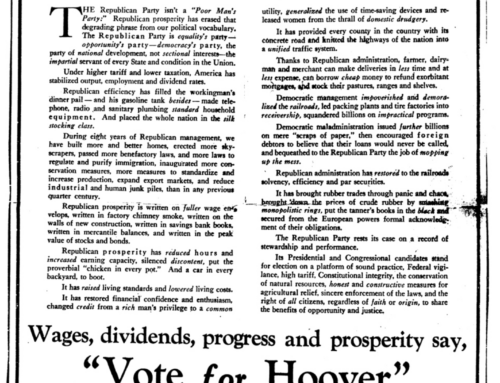We are on a mission to lower barriers to entry in the ETF market by delivering an affordable, easy-to-use, and
transparent solution. Via our EA Series Trust, we partner with fund managers (hedge, mutual, SMA), registered investment advisors (RIAs), and family offices who want to leverage the material tax and operational efficiencies of the ETF structure.
As an ETF white-label platform, we get the following question at least 1x a day: “How do I start an ETF?”
Well, there is good news, and there is bad news:
- Good news: we can help you access the ETF market with an affordable, turnkey, and transparent ETF white label offering that spans the complexity spectrum from standard ETF launches to highly complex tax-free conversion transactions.
- Bad news: launching an ETF is an inherently challenging task with many moving parts.
We have built a library of materials and educational links to help you become a more informed ETF white-label consumer.
ETF White Label Educational Materials
Our Firm:
- Introduction to ETF taxation and 351 conversions.
- The case for converting managed accounts into an ETF vis section 351. It’s possible.
- Can you convert your managed accounts, hedge funds, or mutual funds into ETFs? Yes.
- Should Advisors/Family Offices Consider Launching Their Own ETFs? Yes.
ETF operations 101:
- Can a white-label provider steal your ETF? No.
- Should I launch an Active ETF or an Index ETF? It depends.
- Can you keep your track record after an ETF conversion? It depends.
- How does ETF liquidity work? It’s complicated.
- Why are ETFs more tax-efficient? And why it sometimes isn’t.
- What does the ETF start-up process look like? Simple, but not easy.
- An ETF regulatory issue explanation: Stacy Fuller et al. went all out!
- ETF Architect Blog
Podcasts on ETF operations:
- #258 episode on why to start an ETF
- Meb Faber, Wes Gray, and Pat Cleary dive into ETF mechanics and inside baseball
- #347 episode on how to start an ETF
- Meb Faber, Wes Gray, and Pat Cleary dive into how to create an ETF
Frequently Asked Questions regarding ETF start-up
How does a white-label platform work?
An ETF White Label Platform enables an ETF Sponsor to launch an ETF without incurring the high cost of building and running a Trust. ETF Architect runs all aspects of running an ETF and enables its clients to focus on distribution and running their strategy.
The high-level services provided by ETF white labels can be broken into three core components:
- Legal/Regulatory/Compliance
- Portfolio Management
- Marketing/Distribution
ETF Architect offers #1/#2. Bank platforms offer #1. And several other white labels offer #1, #2, and #3 in one package.
Do I need to trade the ETF and run custom
baskets? Who trades my ETF?
We bring a best-in-class trading and execution team as part of our service offering. There is no incremental need to hire trading personnel or outsource trading to a third party. Most importantly, ETF Architect prides itself in high-quality trading operations, ensuring your shareholders are afforded a fiduciary level of care in the execution of its duties.
Does your firm help me with distribution? I have a great idea but need help selling.
Distribution is a huge component of the ETF business. More importantly, distribution requires a highly customized, bespoke approach (at least for boutique operators). What may be the viable path for one fund is NOT a viable path for another. We prefer to provide bespoke 1:1 consulting on distribution, as required, and we will leverage our network on your behalf. Distribution expenses can get costly and fast. As such, we will not provide canned distribution services or packages upfront but rather will work with you to assess where your strengths and weaknesses are, what stage of ETF growth you anticipate being in, and how a comprehensive distribution strategy can leverage those points.
Am I an Adviser on the Trust? A Sub-Adviser?
Both options are available, but being a sub-advisor entails lower costs and complications.
Do I need to be regulated?
In general, yes. One can operate an index ETF and avoid registration under the publisher’s exemption, however, we strongly recommend that all ETF sponsors register with the SEC, regardless of whether or not they seek to operate an index-based fund or an active fund.
How is billing handled? Do I enter into a lot of service agreements?
ETF Architect provides a single, clean invoice on one page. We include all accounting, billing, and invoice payments as part of our low, fixed fee. You enter into a single contract with ETF Architect, and we deal with invoice management and billing on your behalf.
Do I get to choose my listing exchange?
Yes. ETF Architect works with all three listing exchanges (NYSE, NASDAQ, CBOE)
What other costs are there that I should know about?
All fund sponsors will need EO/DO insurance and must cover certain variable costs. We seek to keep these costs as low as possible and bill them pass-through (i.e., no markup).
What types of funds can your platform handle?
Our platform can support any fund type with the appropriate partner. Each strategy type is evaluated on a standalone basis (e.g., equities, fixed income, futures, etc.).
What are your screening criteria?
We do not seek to be the largest platform or the platform with the most funds. We grow slowly and selectively, partnering with high-integrity firms with a demonstrable chance of success. At a minimum, we expect partners to possess $500k in operating capital, $5M of launch capital for the ETF on Day 1, and a reasonable roadmap to $50M in fund AUM.
What is your pricing?
Pricing is developed on a case-by-case basis. For a generic ETF offering, one can expect startup costs to range from $50k to $75k and ongoing all-in costs to range from $200k to $250k+ per year. Plus, additional marginal costs vary from 5bps to 15bps depending on the scale of the fund.
What do I need to do to launch an ETF?
We launch a new ETF via three key workstreams: SEC approval, Board approval, and internal compliance program development. Launch times can vary widely based on the Sponsor’s registration status, ability to iterate on board materials, and desired launch date. A launch can occur as quickly as 90 days.
How much does it cost to launch an ETF?
Launch costs are incurred and passed on without markup to you. We rely on select vendors curated for years to ensure the lowest possible costs. See above for ballpark price estimates.
Who can start an ETF?
Sponsors must be willing to register with the SEC as a Sub-Adviser, or if an index provider, establish a robust
compliance program subject to Board approval. While anyone can start an ETF, we screen candidates for a commitment to compliance and a robust, viable business plan.
Is it hard to run an ETF?
For normal people, yes. For combat Marines, no.
All joking aside, running an ETF is a complex operation involving many moving pieces. We have been working on our ETF platform for over a decade and still have room for improvement!
Can you convert mutual funds into ETFs?
Yes. Mutual fund conversions are becoming increasingly common. Additional costs are required to ensure a smooth conversion; however, the process is common.
Can you convert hedge funds into ETFs?
Yes. We can (and have) converted hedge funds into ETFs. The analysis will be conducted to confirm eligibility and a work plan for conversion. Additional costs apply.
Can you convert SMAs into ETFs?
This is possible via 351. The analysis will be conducted to evaluate conversion potential. Additional costs apply.
Ready to Launch an ETF?
Fill out the following form and we’ll have a conversation.





